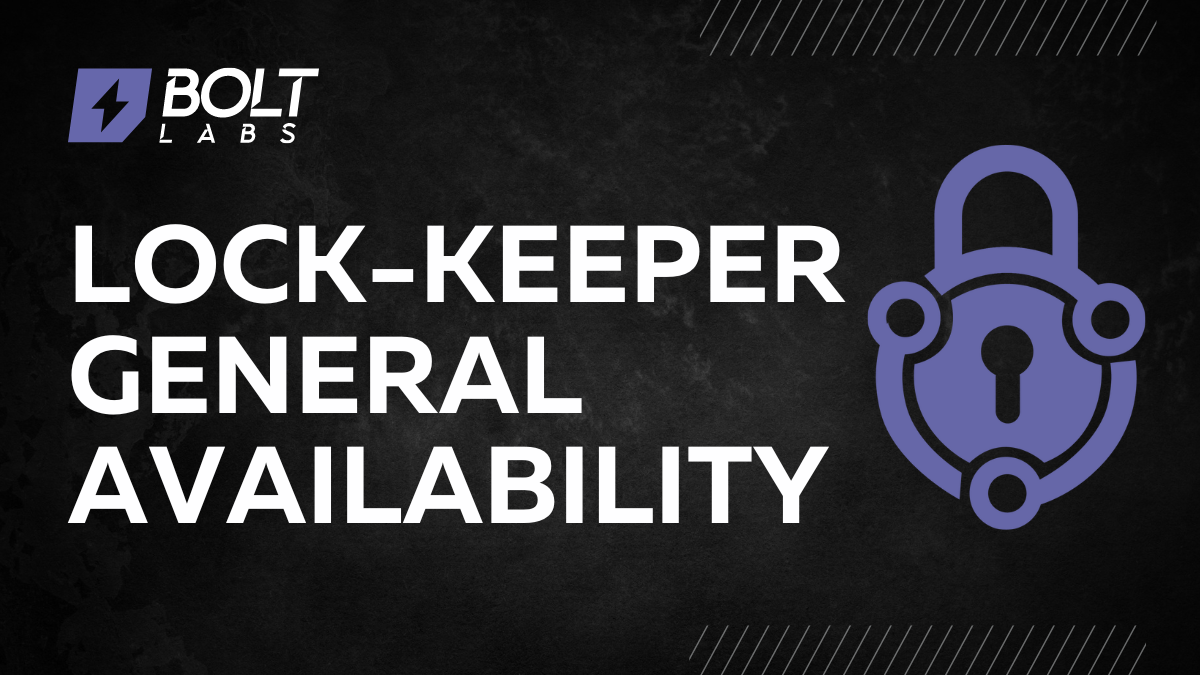Bolt Labs, an emerging provider of Web3 privacy and security solutions, today announced the latest release of Lock-Keeper, a digital Wallet as a Service infrastructure designed to provide developers a turnkey approach to securing Web3 digital assets. Web3 designers often have to choose between security or performance and control.
The complexity and processing overhead of current solutions often means assets like in-game items or “token economies” are perceived as having low-value—leaving them unprotected. While the value of a single in-game asset, for example, may seem low, the aggregate value of assets within a game developer’s platform can fluctuate and grow exponentially with scale.
“With Lock-Keeper, we’re providing developers with the tools they need to build secure, user-friendly applications that protect digital assets,” said J. Ayo Akinyele, PhD, CEO of Bolt Labs. “Our goal is to make it easy for developers to integrate security and privacy into their applications, so they can focus on building great products — not make sacrifices.”
Lock-Keeper’s flexible and modular implementation allows developers and users to apply an appropriate level of security to all assets.
The key difference between Lock-Keeper and existing solutions is the flexible policy engine that supports a high-volume of transactions while enabling developers to have control over what rules they choose to enforce on digital transactions.
Bolt Labs and Forte, a top blockchain gaming company, joined forces last year to form a strategic partnership that allowed for the integration of Lock-Keeper into various projects for Forte’s clients. According to Abhishek Agarwal, Senior Director of Product Management, Wallet, Defi, and Gaming at Forte, “Lock-keeper driven hidden non-custodial wallets empower any genre of gamers to engage with Web3 enabled games in a seamless manner.” Agarwal continued, “Its flexible tooling ensures gaming studios can benefit from Web3 economies and build out ecosystems in a secure and compliant manner.”
Lock-Keeper lets developers break apart and distribute keys—sealing and storing them securely in multiple key servers on trusted hardware enclaves for redundancy and scale. The team is also on track to enable developers and users to have joint ownership of digital asset keys at scale—an industry first.
Lock-Keeper offers a number of features that make it unique in the market, including:
- Future-proof integration: Lock-Keeper’s infrastructure is transparent from the developer’s standpoint, requiring only an initial integration to receive a universe of possible security and privacy schemes.
- Server-side security: Developers own their keys and control both secure storage and key usage. Even in the event that a cloud provider is compromised, no user keys can be obtained when protected with Lock-Keeper. Additionally, Web3 developers are not required to blindly trust Lock-Keeper. Attestations make sure Lock-Keeper itself is not compromised, verifying all code and every action within the trusted enclave.
- Secure hardware protection: Private keys are stored securely using cloud-based trusted execution environments. This means protection against software and hardware attacks.
- Flexible authorization policies: Key usage is gated via flexible authorization policies. Users can specify authorization policies around transactions involving their keys. Lock-Keeper allows service providers to integrate additional user authentication mechanisms (like PINs and biometrics) to provide extra assurance for keys that protect high-value assets.
Lock-Keeper is now available for demonstrations and Web3 project integrations. For more information or to sign up for a free Lock-Keeper trial, developers can speak with a Bolt cryptographic expert via www.boltlabs.io.
About Bolt Labs
Bolt Labs’ mission is to build usable, secure, and scalable infrastructure that enables everyone to securely store their keys while preserving the privacy of their transactions. The Bolt team consists of cryptographers and engineers with expertise in developing and deploying real-world applications of secure multi-party computation and zero-knowledge proof technology.
